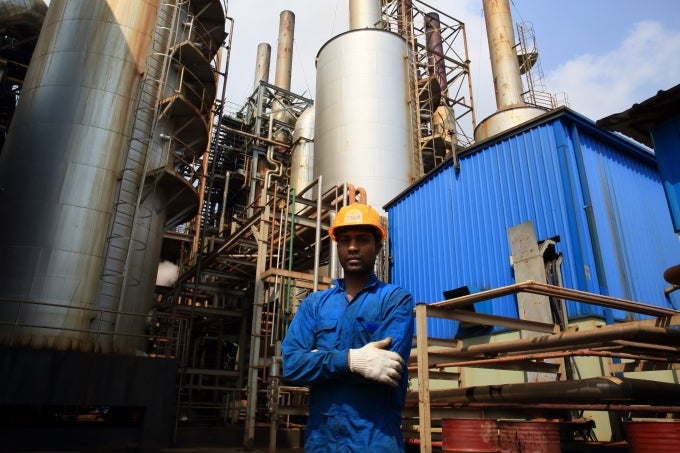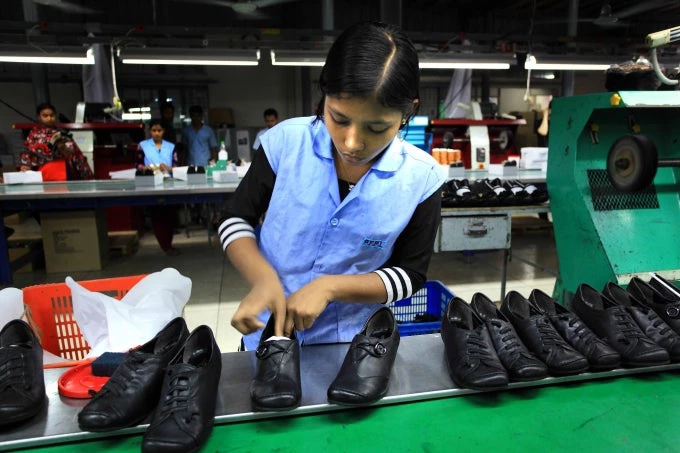
There is no doubt that Bangladesh is a modern day success story—a far cry from Henry Kissinger’s label of a “basket case.” Its growth has been steady, even impressive in the context of feeble global growth, and it has now joined the ranks of a lower middle-income country. Its poverty reduction record is even more impressive, with over 20.5 million people escaping poverty between 1991 and 2010.
But the next phase of growth and poverty reduction becomes harder, since the more obvious sources of growth have largely been exploited.
During our recent Facebook live stream on jobs and exports in Bangladesh, there was much interest in potential new sectors, jobs for graduates, and role of startup companies, among other issues. The Diagnostic Trade Integration Study explored the issues of the next phase of jobs and export growth in details.
As we discussed, Bangladesh’s export performance has been impressive. Its world market share doubled over 1995-2012. It is now the world’s second largest apparel exporter, next only to China. The apparel sector employs about 4 million workers, 75 percent of whom are female.
But success in apparels has also meant an over-reliance on this sector, which forms over 80 percent of total exports. And this is accompanied by a lack of market diversification—the most notable “absentees” being South Asia and East Asia, the two fastest growing regions in the world, with only around 2 and 9 percent of exports, respectively, going to these regions.

In order to go beyond garments, while consolidating its strengths in this sector, and to accelerate job creation through exports, Bangladesh will need to deepen trade and investment linkages with South and East Asian economies, accompanied by a push to diversify to other promising sectors in manufacturing and services.
Some key reform areas that were discussed:
Create a neutral trade regime. Bangladesh’s tariff regime creates incentives to produce for the home market. Total tariffs are effectively doubled by complex and non-transparent para tariffs, to levels of around 27 percent. The regime also provides much higher protection to consumer goods production versus intermediates, which distorts resource allocation, creates fertile ground for protectionist lobbying, and creates disincentives for production of intermediate products.
Level the playing field for all exporters. Much of the success of garments owes to the bonded warehouse facility that enables duty-free imports for exports. However, this facility has, in practice, not been easily accessible to other sectors, including potential exporters and newer exporting sectors, and has been an important hurdle for export diversification.
Attract high quality FDI in goods and services. Bangladesh’s FDI inflows are growing. But they are below potential and well below FDI inflows of competing countries. In particular, there is insufficient FDI in manufacturing and backbone services, which would allow the economy to diversify and also become more efficient overall. Lack of serviced land is a key constraint to FDI. Other constraints include excessive and non-transparent regulations, and potential private sector resistance to FDI.
Improve logistics and trade facilitation. Bangladesh has significantly improved its rankings in the 2016 Logistics Performance Index, but its 87th rank is still short of India’s 35th or Pakistan’s 68th rank. There is still much work to be done if Bangladesh is to embed itself deeper into regional and global value chains—in particular, “in and out” trade has to be very efficiently done; speeding up goods transport between Dhaka and Chittagong; and overcoming significant bottlenecks in border trade with India.
The agenda is clear. Implementation will involve overcoming likely resistance from those who benefit from the status quo, and empowering those who will champion this forward-looking agenda (see some examples here). There will be winners and losers as a consequence of reforms, but, it is important that a pro-active approach is followed in taking care of potential losers, e.g., labor market training programs, creating a more business-friendly economic environment, etc. It is also worthwhile to invest in a communications campaign with a positive vision of change, to help overcome resistance.
As many other countries have shown, the gain can be worth the short-term pain.


Join the Conversation